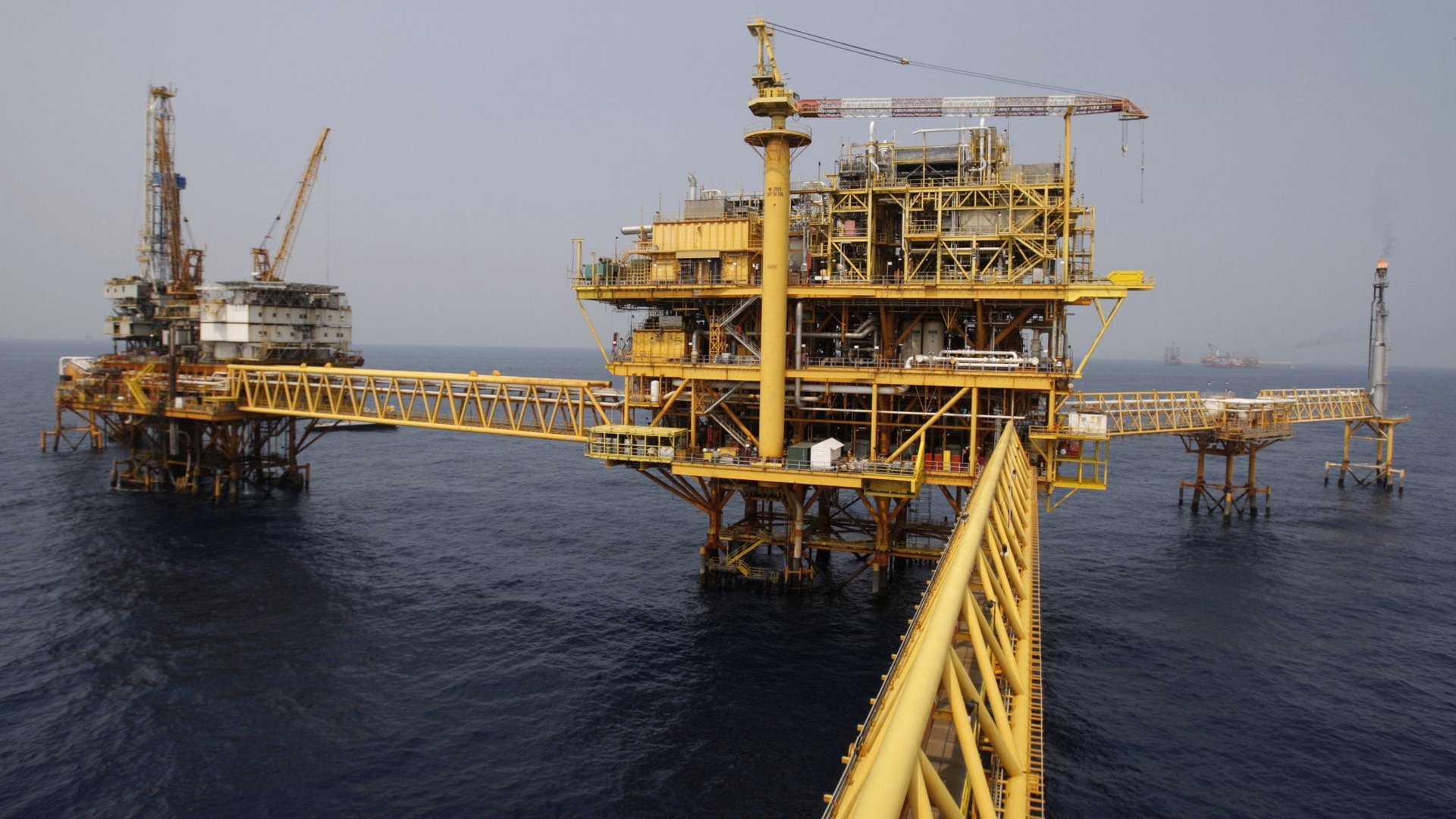This US engineering company wants Mexico to pay a $550 million bill before restarting its oil drilling dreams
Seven decades after pioneering petrostate activism, Mexico is dangling attractive contract terms to entice the West’s biggest oil companies to help revive the nation’s plunging production. But KBR, a US engineering company that has been suing Mexico’s state-owned oil company for nine years, says that the country should pay its old business partners before it talks about luring any new ones.


Seven decades after pioneering petrostate activism, Mexico is dangling attractive contract terms to entice the West’s biggest oil companies to help revive the nation’s plunging production. But KBR, a US engineering company that has been suing Mexico’s state-owned oil company for nine years, says that the country should pay its old business partners before it talks about luring any new ones.
In a New York court hearing today, KBR plans to demand $550 million from state oil company Pemex for failing to pay for two offshore natural gas platforms that KBR built in Mexico’s Bay of Campeche. The hearing follows an Aug. 27 decision in KBR’s favor by US District Judge Alvin Hellerstein, who will now announce the monetary award.
Pemex’s New York-based lawyer did not respond to an email for comment. Over the history of the case, Pemex has claimed that KBR walked away from the work before it was done. KBR said that Pemex delivered shoddy or late work on its part of the project, then refused to pay when the US company wanted more money to cover its cost for fixing the shortcomings.
There’s more at stake here than just half a billion dollars. To the degree it tarnishes Pemex’s reputation for reliability, the case could affect the efforts of Mexican President Enrique Pena Nieto to juice his country’s economy. Oil is a core part of the Mexican economy, but production has plunged 29% to 2.4 million barrels a day from 3.4 million barrels a day in 2004.
To counter that drop, Nieto is advocating a dramatic change in Mexican law to allow foreign companies back onto the oil patch. His concessions include allowing the companies to book the Mexican reserves in their assets as reported to the Securities and Exchange Commission, which could be highly attractive to the oil majors since reserves are a key metric of company value. Until now, Mexican law has strictly forbidden any hint of foreign ownership of the country’s oil.
Big oil companies are hesitant about working in Mexico for numerous reasons, including uncertainty about how much oil it has and tax terms. But KBR’s claims add another dimension.
The story for KBR began in the late 1990s, when it contracted with Pemex to work on three offshore projects, supplying platforms, pipelines and other structures in the southern Gulf of Mexico. KBR says that all three were delayed by problems with design and timely delivery of equipment by Pemex.
After arbitration in Mexico, Pemex paid $106 million to settle one of the cases and $80 million for the second. That left the third and largest—the dispute over the two natural gas platforms.
Most of the case has not turned on who is right about the facts, but on courtroom procedure and jurisdiction. Finally in 2009, the International Chamber of Commerce ruled in KBR’s favor and awarded it $286 million plus costs and interest, which put the sum at about $356 million. On Aug. 27, Judge Hellerstein handed down a new ruling against Pemex, setting up today’s hearing.
Now, says Mark Lowe, KBR’s vice president for litigation, the various costs and interest has brought the sum to $550 million. If Pemex does not pay, he will seek to attach Pemex property in New York. “I am adamant that we get paid,” Lowe said.
But his main message is for other companies considering the plunge into Mexico. “There is a huge financial risk that people aren’t aware of,” he said.